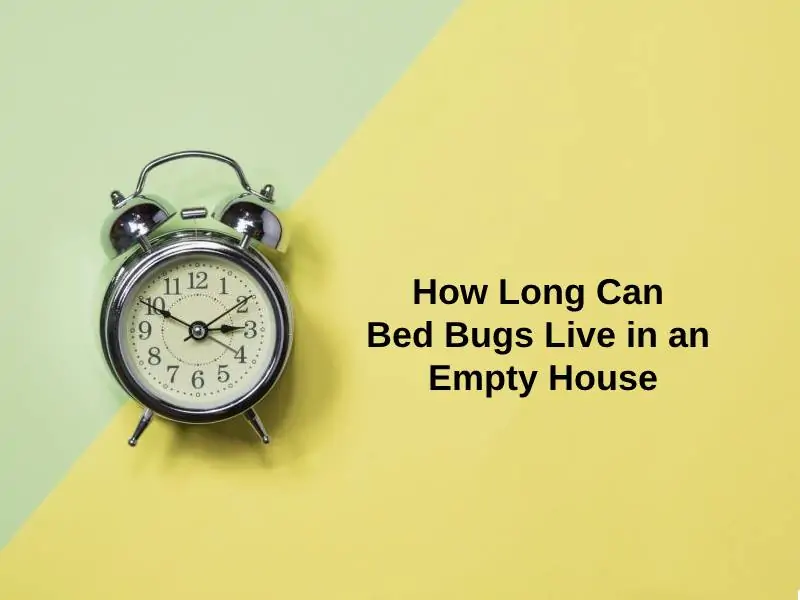Exact Answer: 12 to 18 months
“Goodnight, sleep tight, don’t let the bed bugs bite” is an age-old saying and for good measures, as bed bug infestations cause havoc to over 20 percent of houses in the United States. Bed bugs are flightless insects and they locomote by moving quickly through the floor or the walls. They can get transported into a home undetected via luggage, clothing, unwashed couches, bed frames, and that is so because their flattened surfaces make it possible for the bed bugs to fit in. And from one object the bed bugs can spread through the house because of their rapid reproduction rate.
Bed bugs solely survive on the blood of mammals including human beings, and the bites are really painless which later changes into itchy welts, thus making it more complicated to determine the cause of the bites.

How Long Can Bed Bugs Live in an Empty House?
Bed bugs are brownish, small, oval insects which live in close affinity with the human residence as they drive their nutrition from mammalian blood including human beings. Biologically, bed bugs can live anywhere between 12 to 18 months without food, so technically in an empty house bed bugs might die out within a year. But there are other factors that influence their survival including the stage of their lifecycle, temperature, humidity, and so on. These are notorious insects that can survive without food for a really long time and they can survive somewhere between 20 to 400 days even when food sources are totally eliminated.
There has been an exponential rise in bed bug infestations in the past decade, which makes it an ongoing crisis. Unlike ticks, which are similar to bed bugs they do not need a host to survive, and neither do they need to stay in a nest to survive, and that in turn makes them better at hiding and hunting. The two major lifecycle stages for bed bugs are nymphs and adults, and to go through each stage they need a blood meal. And while the adult bed bugs need to consume blood within 3 to 7 days, the nymphs can go without a meal for longer.
The life cycle of Bed bugs
| Stage | Apperance | Duration of stage | Chances of survival |
| Eggs | Grain-like in structure and milky white in colour. | Two weeks for the eggs to hatch. | Moderate |
| Nymphs | Younger nymphs are yellowish or whitish in color while older ones are browner. They are similar in size to the adult without sexual maturity. | At normal room temperature, they can mold into adults within 5 weeks. | The highest, they need to feed before each molding. |
| Adult | Brown, flat, oval in shape. | Six to eight months. | Depends on external factors, however, they need almost weekly feedings. |
Why Can Bed Bugs Live This Long In An Empty House?
There are two major factors that determine their survival, external and internal factors. In external factors, there are subfactors like temperature, weather, humidity, and the presence of other warm-blooded animals other than human beings. If the temperature of the empty house is in the extremes be it cold or hot, the bugs die out within 2 to 3 weeks given that there is no mode of getting a blood meal. From various studies, it is proven that these bugs can withstand only a temperature of 113 Fahrenheit for a few days and in general they are more resistant to colder weather than warmer ones.
For internal factors, these bugs can hibernate if the temperatures fall below 25 or so, not only that the adult bugs can lose up to 1/3th of their body weight to conserve their energy.
Conclusion
Thus to get completely rid of bed bugs, it is best to debug the house with the help of a professional exterminator. If that is not possible, the best bet will be to clean up the nooks and crannies of the house and seal up the beds, couches, and so on. As with most other things, prevention is better than cure thus here too it better that bed bugs do not enter the house in the first place. The major way for these bugs to get in is via clothes, luggage, and other travel items. Now with more international and regional travel being common, it is important to clean these items after a trip.